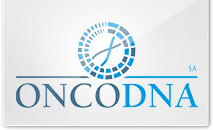Category Archives: Biotech Companies Belgium
Immunxperts – immunogenicity assessment
ImmunXperts offers services to support researchers in the risk assessment and mitigation of drug candidate’s immunogenicity profile.
Immunxperts – immunogenicity assessment
BioFunds.org – you can finance research for Free !
BioFunds.org – you can finance research for Free !
By using Biofunds for all your search on Google, PubMed or Protocols, you can help finance Science and Research ! For Free !
Oncurious – treating Medulloblastoma
Oncurious is an oncology company focused on the development of innovative medicines for the treatment of pediatric brain tumors.
Oncurious – treating Medulloblastoma
Biocartis – molecular diagnostics solutions
Biocartis is a biotech company delivering innovative solutions to the pharmaceutical and healthcare market. Biocartis provides highly automated instruments in combination with novel and broadly applicable molecular diagnostic assays, thus facilitating personalized molecular testing.
Biocartis – molecular diagnostics solutions
AmplyCell – optimizing monoclonal antibody production
AmplyCell is a Biotech Service Provider optimizing monoclonal antibody production for diagnostic and biopharma companies, CMO and research groups.
AmplyCell – optimizing monoclonal antibody production
OncoDNA – deep sequencing of tumor DNA
OncoDNA is the first European company to provide personalized medicine in oncology based on the analysis of patient tumor DNA.
OncoDNA – deep sequencing of tumor DNA
Integrated DNA Technologies – custom oligonucleotides
Integrated DNA Technologies (IDT) is a leading provider of custom oligonucleotides.
Integrated DNA Technologies – custom oligonucleotides
Oxyrane – enzyme replacement therapies
Oxyrane develops Enzyme Replacement Therapies (ERTs) for the treatment of lysosomal storage diseases (LSDs) using a proprietary engineered yeast expression platform based on Yarrowia lipolytica.
Oxyrane – enzyme replacement therapies
Active Motif – epigenetic research
Active Motif is a biotech company leader in developing innovative tools for epigenetic and gene regulation research.









